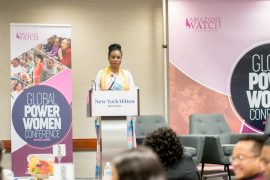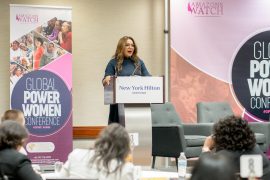“When it comes to the start of breastfeeding, timing is everything,” said Henrietta Fore, the UN Children’s Fund’s (UNICEF) Executive Director, on the eve of World Breastfeeding Week.
World Breastfeeding Week is celebrated annually from 1 to 7 August to encourage breastfeeding and improve the health of babies around the world by providing infants with the nutrients they need.
“In many countries, it can even be a matter of life or death,” she added.
In the report, Capture the Moment, UNICEF and the World Health Organization (WHO) note that while newborns who breastfeed in the first hour of life are significantly more likely to survive, they estimate that 78 million newborns are excluded.
“Each year, millions of newborns miss out on the benefits of early breastfeeding and the reasons – all too often – are things we can change,” she continued. “Mothers simply don’t receive enough support to breastfeed within those crucial minutes after birth, even from medical personnel at health facilities.”
Even a few hours delay after birth could pose life-threatening consequences. Skin-to-skin contact along with suckling at the breast stimulate the mother’s production of breastmilk, including colostrum, which is produced ahead of regular milk, in the first few days after giving birth. It is so rich in nutrients and antibodies, that it is often referred to as the baby’s first vaccine.
According to the report, 65 per cent of countries in Eastern and Southern Africa have the highest rate of breastfeeding within the first hour, while East Asia and the Pacific have the lowest rate with only 32 percent benefitting from the early initiation.
While nearly nine-in-ten babies born in Burundi, Sri Lanka and Vanuatu are breastfed within that first hour, only two-in-10 born in Azerbaijan, Chad and Montenegro were nursed.
“Breastfeeding gives children the best possible start in life,” said Tedros Adhanom Ghebreyesus, WHO Director-General. “We must urgently scale up support to mothers – be it from family members, health care workers, employers and governments, so they can give their children the start they deserve.”
The WHO and UNICEF-led Global Breastfeeding Collective also released the 2018 Global Breastfeeding Scorecard, which tracks progress for and urges countries to advance breastfeeding policies and programmes to help mothers breastfeed their babies in the first hour of life.
Source: news.un.org




